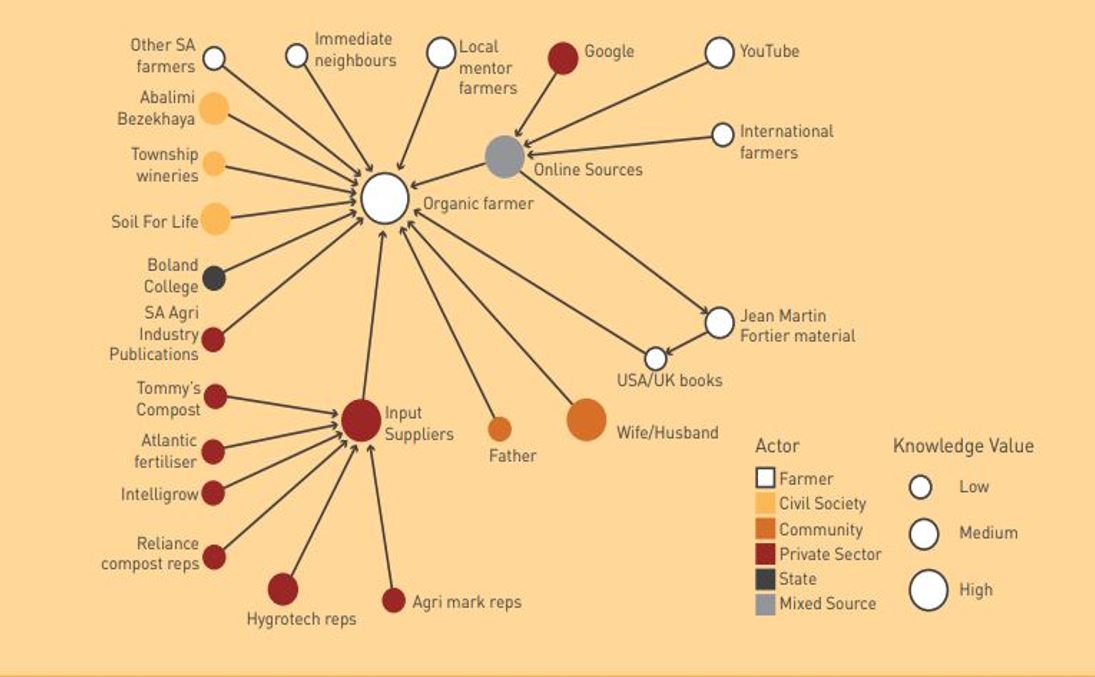Here we have collected a number of methods, how-to guides, and other tools and process descriptions to help practitioners better understand the needs of communities, encourage cooperation, and foster resilient and sustainable practices. While this is by no means a comprehensive list of all tools and process support guides that are available, it’s a starting point for methods that take a social-ecological, complex systems approach to resilience in practice. Click the links below to find out more.
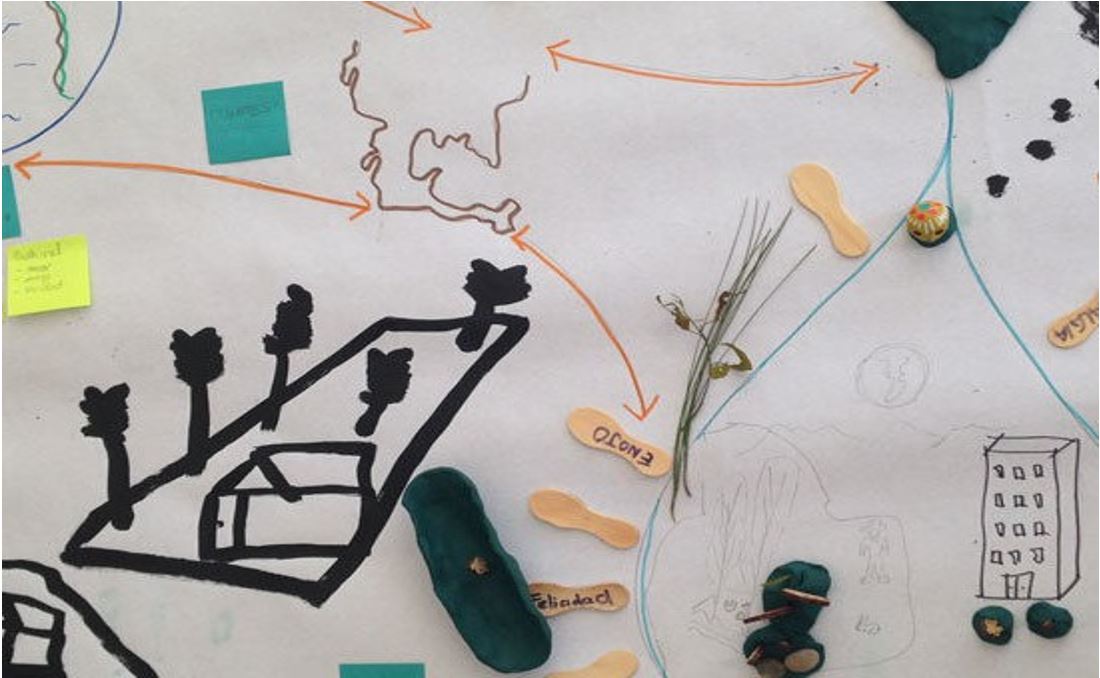
T-Labs
Transformation labs (T-Labs) are multi-stakeholder processes to foster innovative change in systems towards more sustainable pathways.
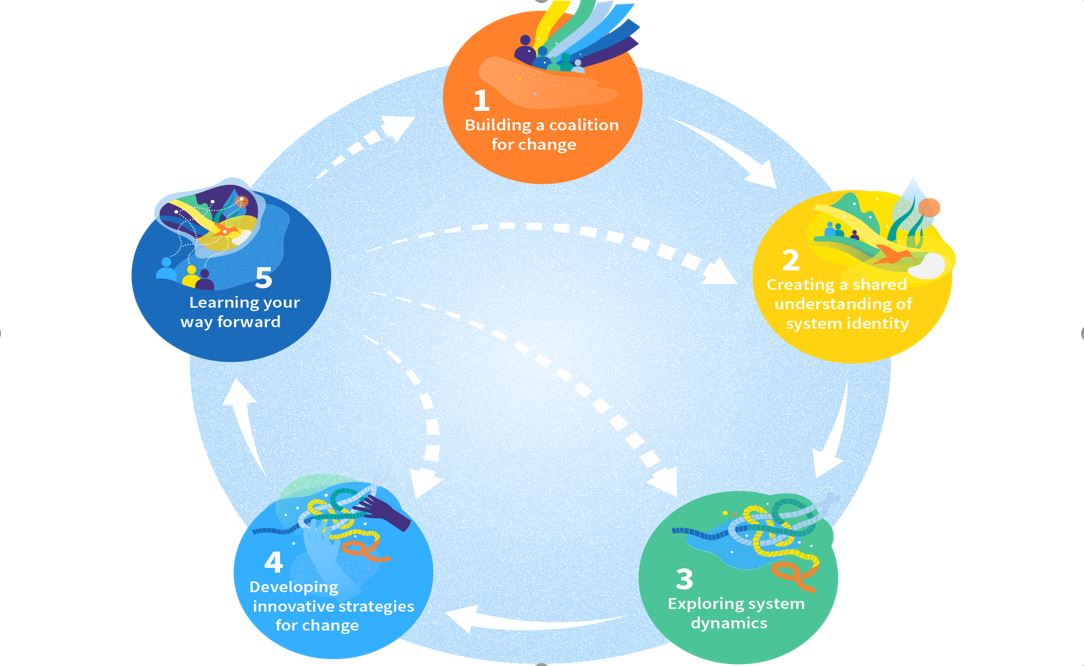
Wayfinder
Wayfinder is a free and open online platform primarily designed for development practitioners, planners, policy makers who are working with sustainable development challenges.
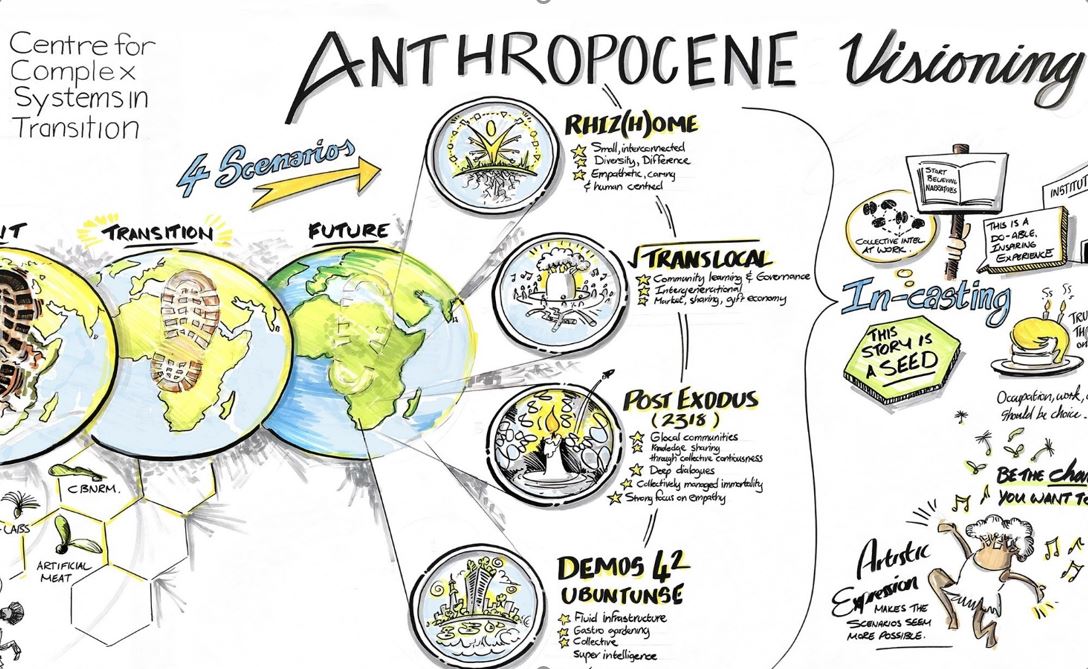
Mānoa Mash-Up
The Mānoa Mash-Up method was developed to generate visions for positive futures that are socially and ecologically desirable, just and sustainable.
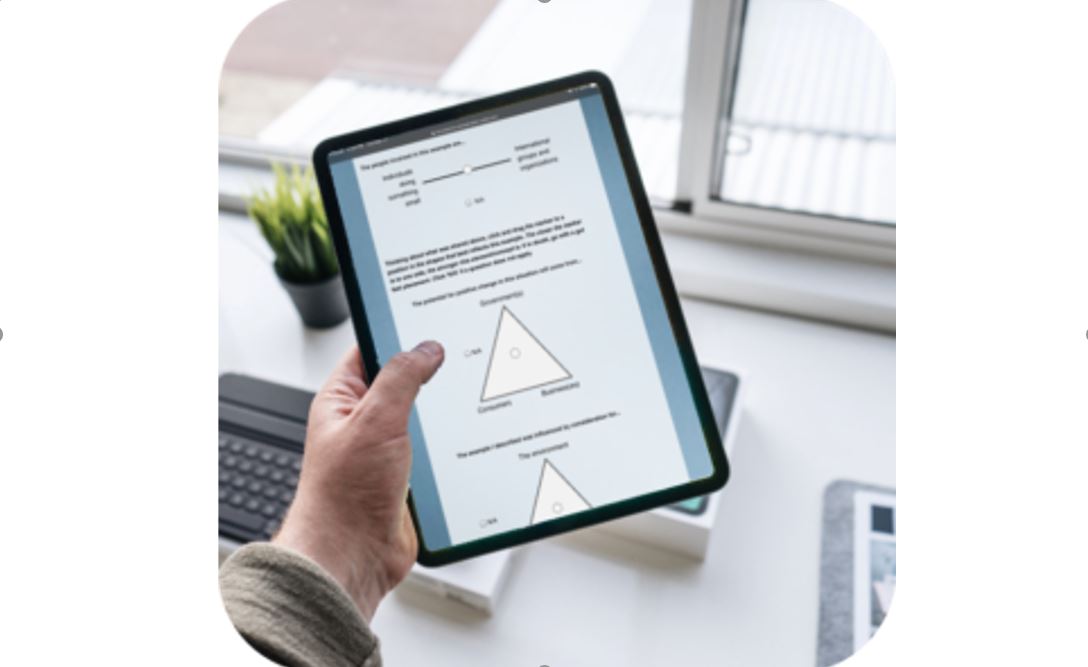
SenseMaker
SenseMaker is a browser- or app-based tool that captures experiences from people, and visualizes patters across a diversity of narratives.
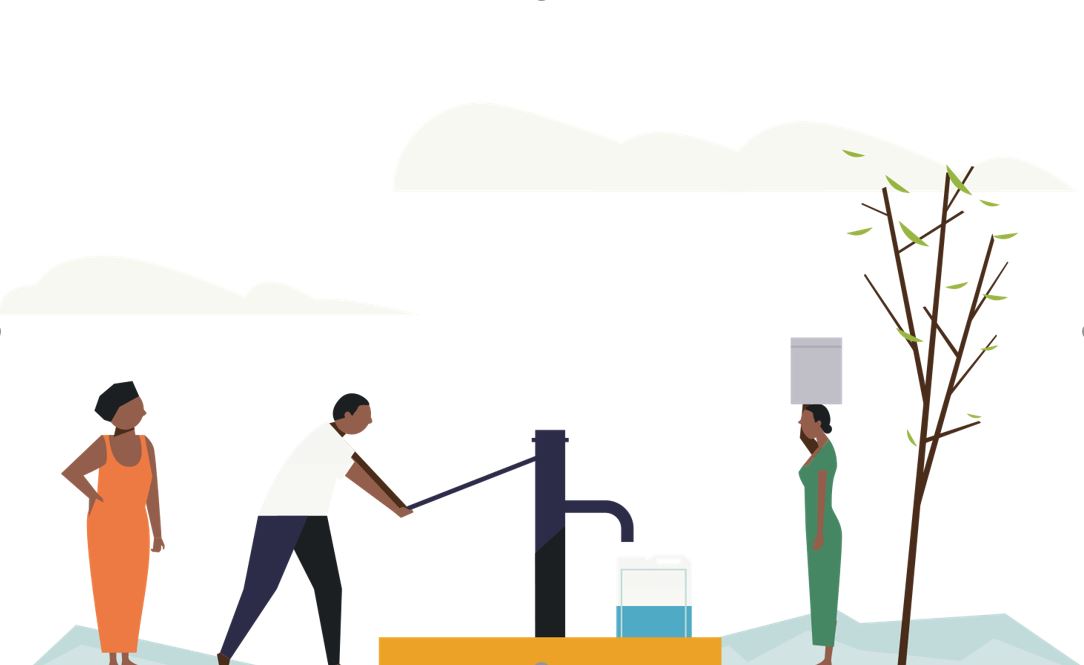
GESI Toolkit
This report outlines Gender Equality and Social Inclusion (GESI) guidelines for project preparation, as developed by the Climate Resilient Infrastructure Development Facility (CRIDF).
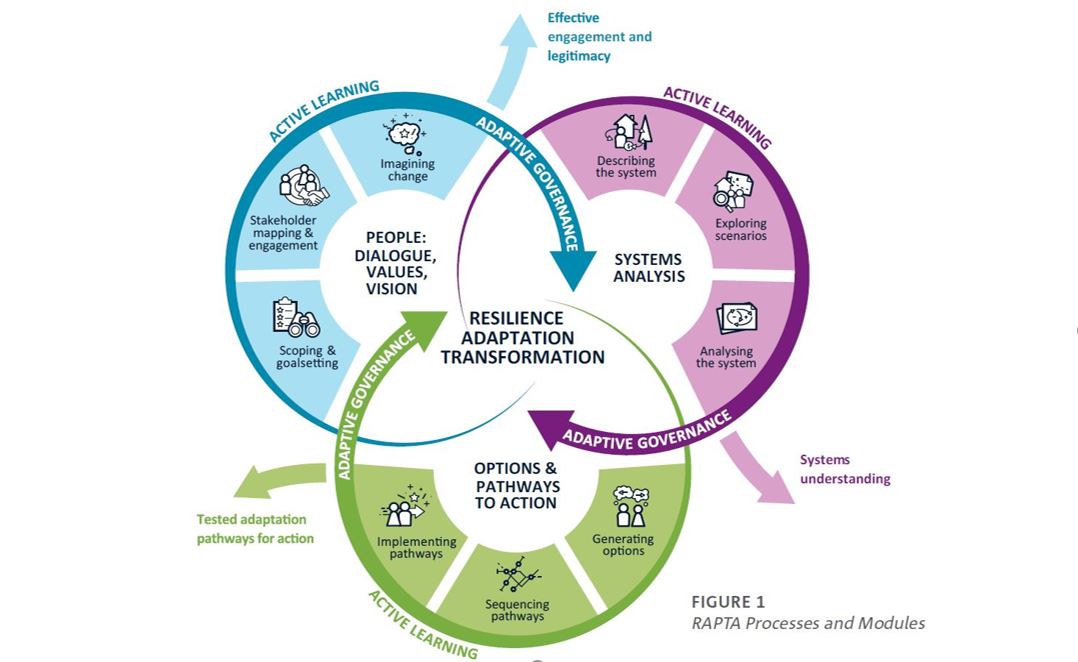
RAPTA
The Resilience, Adaptation Pathways and Transformation Approach (RAPTA) is a guide to designing, implementing, and assessing interventions for sustainable futures.
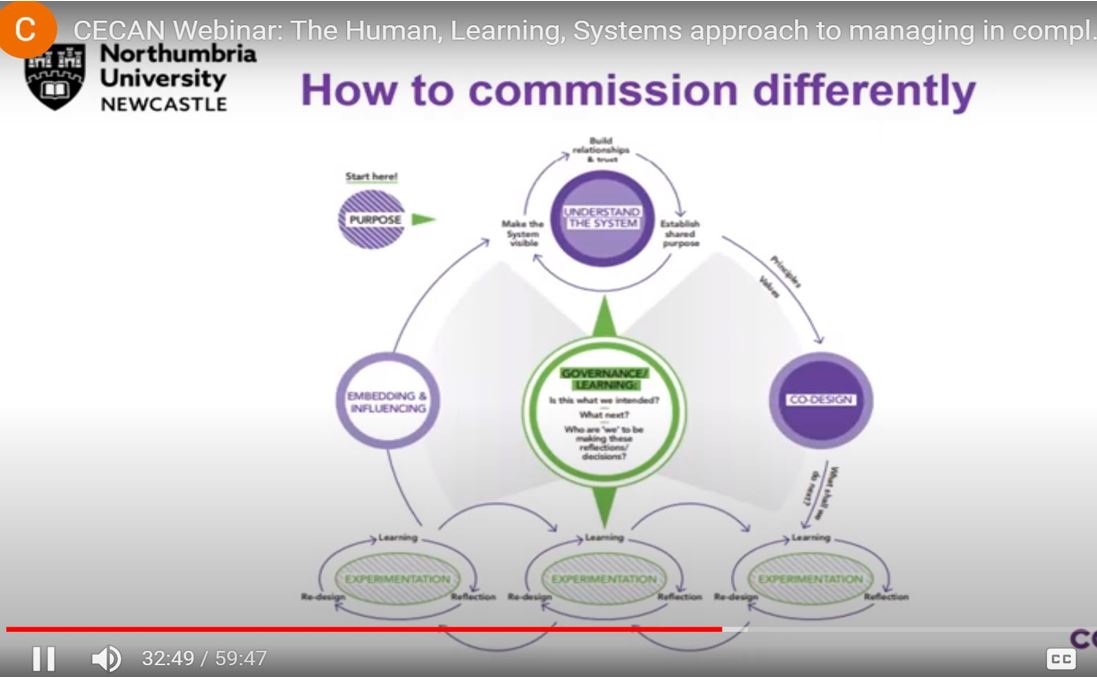
HLS approach
This webinar by Dr Toby Lowe covers the Human, Learning, Systems (HLS) approach, which is an emerging complexity-informed approach to public management.

Formative RA
Formative resilience assessments (Formative RA) can be used to stimulate the development of social resilience in both social-ecological and socio-technical systems.
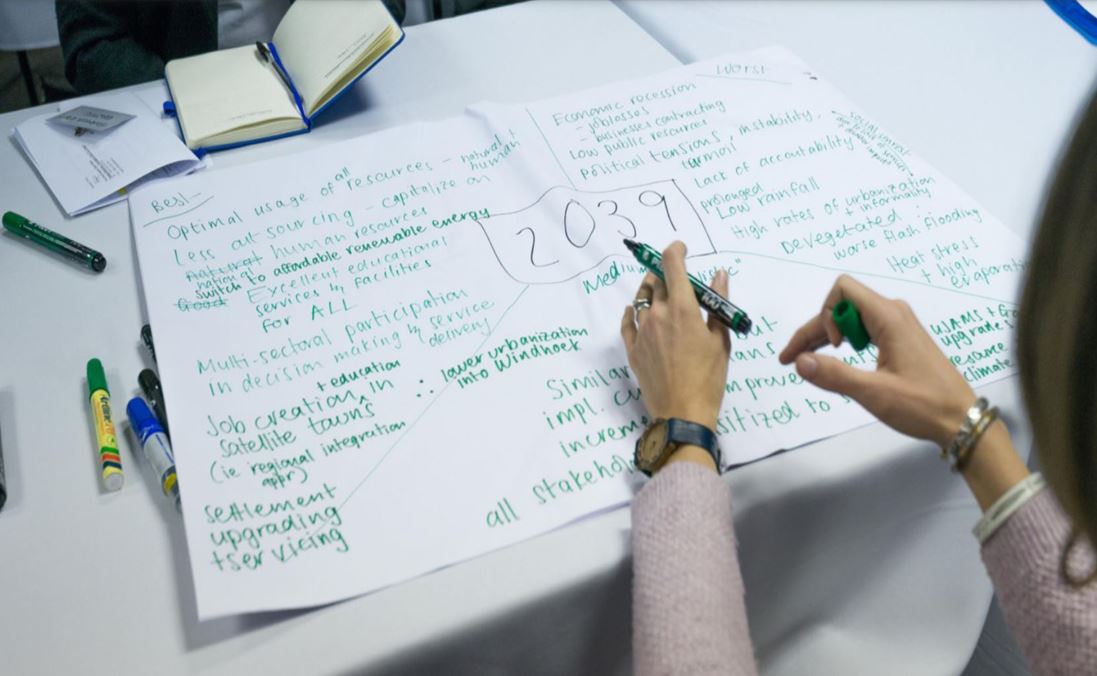
CRNs
Climate Risk Narratives (CRNs) are
stories told from the future of a
changed climate and its associated
impacts. CRNs help to communicate climate information and integrate knowledge.

